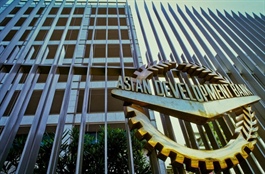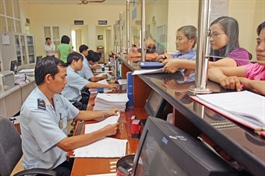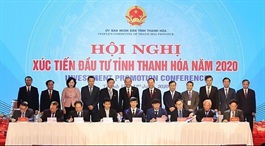NA passes EVIPA, Public-Private Partnership Law
NA passes EVIPA, Public-Private Partnership Law
The agreement will replace current bilateral agreements on investments between Viet Nam and 21 countries in the European Union. The NA recognises and enables the enforcement of final judgements issued by a dispute settlement institution, designated to settle investment disputes between Viet Nam and the EU as well as EU members. 
Within a five-year period, the recognition and enforcement of the final judgments of which Viet Nam is the defendant will apply under the 1958 New York Convention on the Recognition and Enforcement of Foreign Arbitral Awards.
The Supreme People’s Court was charged to provide information and guidelines to city and provincial courts to follow provisions set in the agreements.
Public-Private Partnerships
In the afternoon, the NA passed the Public-Private Partnership Law establishing a legal framework to encourage the private sector to invest in infrastructure projects.
Some of the highlights of the Public-Private Partnership (PPP) Law:
The law stipulates five investment priorities which are transport, power networks and power plants, potable water and treatment of wastewater projects, healthcare and education, as well as information technology infrastructure.
Only projects with total investment amounts exceeding VND200 billion (US$8.6 million) are eligible for the PPP model. Projects in poor or isolated localities are exceptions to this rule, which only require investment amounts from VND100 billion.
The State’s share in PPP projects must not exceed 50 per cent of the investment amount.
For the first time, a risk-sharing mechanism is in place that allows the State to provide support for projects whose income is under 75 per cent of the expected income. The risk-sharing mechanism has been said to be crucial in the State’s effort to attract private investors.
Aside from traditional funding sources such as banks and credit institutions, corporates may issue project bonds to help with funding for the projects.
The law puts a halt to Build-Transfer projects in the near future as the State is no longer considering and conducting studies for projects under the Build-Transfer model after the introduction of the PPP Law.
Speaking on the topic of PPP projects, Vu Tien Loc, chairman of the Vietnam Chamber of Commerce and Industry, said it’s high time the State introduces changes to the country’s policies.
“This is the time to remove barriers and obstacles to make sure the State and private investors could improve resiliency to minimise risk and maximise mutual benefits,” said Loc.
Dao Viet Dung, an expert on state management and PPP from the Asian Development Bank, said PPP projects, especially ones with a State investment share, should establish their own budgets instead of being part of a public investment budget.
“A dedicated budget for PPP projects affirms private investors of the State’s commitment. Banks will also provide loans with lower interest as risk is reduced,” said Dung.
Doan Giang from the United States Agency for International Development said there is a need to clearly include and define banks’ rights and interests in PPP projects as they often account for large amounts of projects’ funding.




















